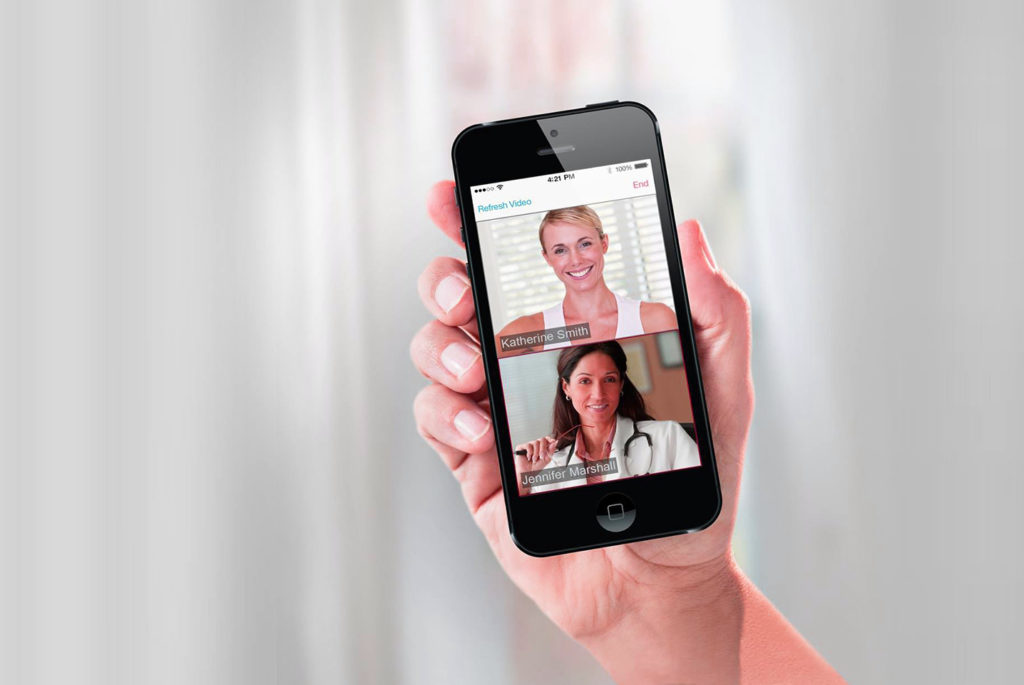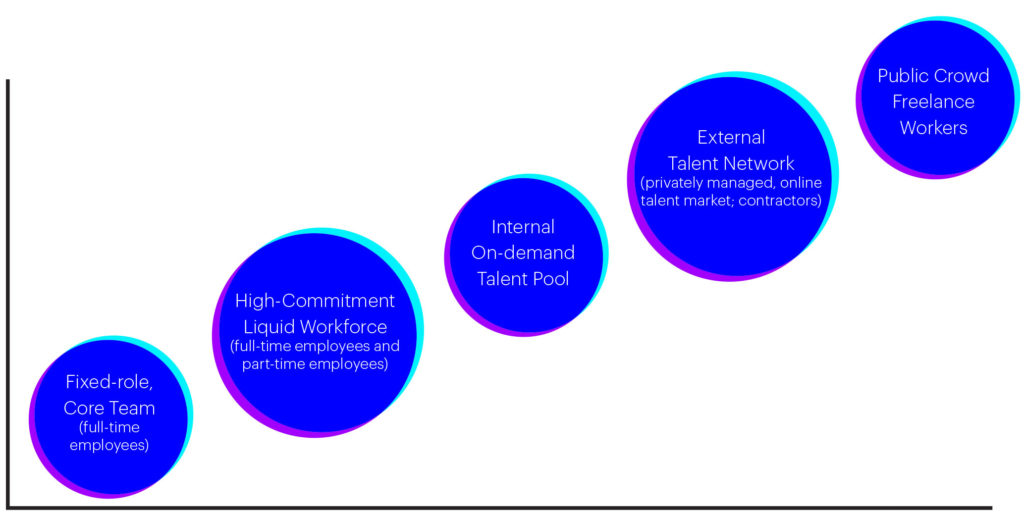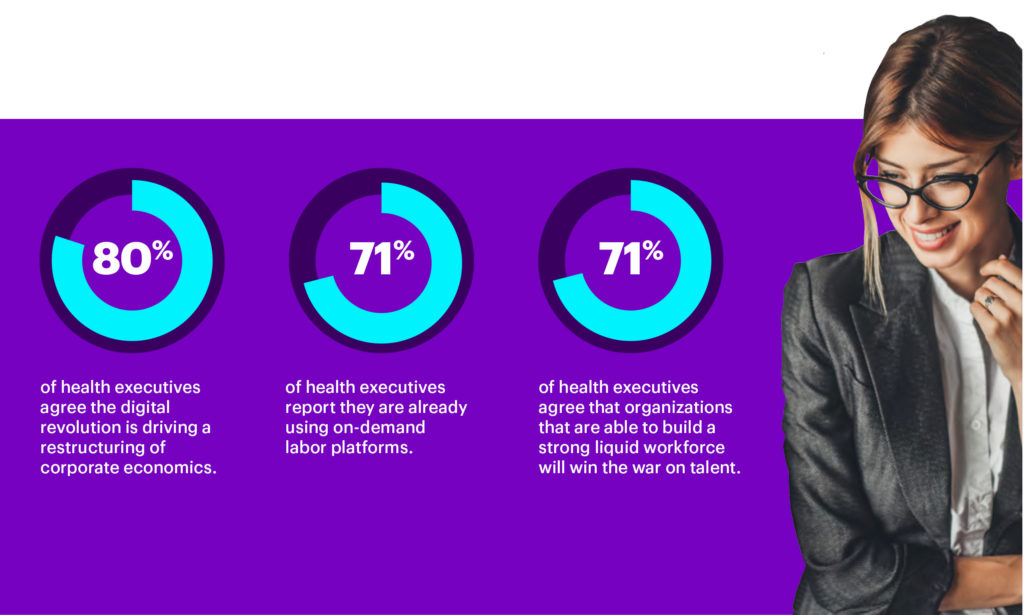
The DFW Hospital Council (DFWHC) is posting blogs submitted by our Associate Members. The following is the third of a series provided by Accenture. For guidelines, please contact Chris Wilson at chrisw@dfwhc.org.
The Accenture Digital Health Technology Vision explores five trends that underscore the importance of technology for people:
• Trend 1—AI is the New UI: Healthcare Experience Above All
• Trend 2—Ecosystem Power Plays: Beyond Health Platforms
• Trend 3—Workforce Marketplace: Invent Your Future Healthcare Workforce
• Trend 4—Design for Humans: Inspire New Behaviors
• Trend 5—The Uncharted: Redefining the Rules of Healthcare
In this series of blog posts, we will show how these trends demonstrate that while technology is all around us, we are at the center. When we adapt technology to the people who use it in healthcare—health insurers, providers and consumers—we will define the future of healthcare.
Join DFWHC and Accenture for a Digital Health Technology Vision webinar on Thursday, January 25, at 2:00 p.m. Central.
Trend 3—Workforce Marketplace: Invent Your Future Healthcare Workforce
The future of work has already arrived and is entering the healthcare enterprise.
Healthcare’s digital leaders are beginning to shape strategies to fundamentally reinvent their workforces. Driven by a surge in on-demand labor platforms and online work management solutions, legacy models and hierarchies are starting to dissolve and be replaced with open talent marketplaces.
This is beginning in the back-office of the healthcare enterprise in corporate functions like technology, finance, human resources, and research and development where there are lower regulatory barriers on the workforce. However, workforce marketplaces are also emerging in select areas of care delivery where open talent platforms connect providers and consumers while confirming regulatory compliance and quality.

Deepening the Talent Pool
The talent marketplace is opening up for the front and back offices of a health enterprise.
Crowdsourcing, labor platforms and virtual care platforms will change the way work is sourced, shared and delivered. Companies now can access more talent from sources outside of traditional employment to get specialized skills when needed. For instance, through online talent platforms, organizations can find people to support technology design and development, finance, human resources and administrative functions.
Online platforms make it easier to rapidly match supply and demand of skills to get work done on demand in a decentralized way. This is in contrast with rigid functional hierarchies of traditional healthcare enterprises. When organizations have greater flexibility to adapt as skillset needs change, they will be relevant, competitive and reduce labor expenses. Without a rigid hierarchy, in-house workers will be free to fill roles throughout the enterprise. Supply will be matched with demand like never before.
There are some possibilities for clinical work to be sourced online, but it is more challenging than for back office roles given regulatory barriers from labor laws in healthcare designed to ensure safety. The possibilities for efficiency and productivity are great, but questions remain: How can platforms have market- clearing functions that ensure clinicians are certified, qualified and will deliver quality? How will governance and safety measures work in a digital landscape? How soon will regulatory models evolve to suit a virtual model of care, especially when licensure is local? The rules must catch up because the workforce marketplace is evolving at speed.
New Ways of Working
While clinical labor is in the early stages of moving to a virtual model, clinical interactions may transition more quickly.
Certain clinical interactions will become virtual interactions that eliminate the need for an in-person visit. Care will no longer be just based on physical location. Specialists will be called upon to treat a condition, regardless of geography.
With virtual care platforms, the patient and clinician might not even see each other in person—which is appealing to many consumers. Our virtual care research revealed that people are interested in a wide range of virtual health and care services.
When asked which of 16 services they would like to receive virtually, more than half of the services were of interest to 70 percent or more of respondents; all of the services were of interest to at least 50 percent of respondents.
Consumers will access specialized expertise right through their smartphones and book a telehealth consult within seconds. Health systems, too, will use technology to amplify their access to qualified clinicians. First, healthcare organizations tapped into on-demand labor platforms for specialties such as radiology, that often do not require in-person interaction. Increasingly, they will use labor platforms to source nursing triage assistance, call center help—even enterprise labor, such as data scientists, designers and developers.

Connecting the Care Ecosystem
American Well’s Exchange uses mobile and virtual technology to lift virtual barriers among health plans, doctors, consumer, employers and care delivery networks. This robust technology platform and sophisticated brokerage engine benefits both patients and clinicians. Consumers have convenient and immediate access to a range of board-certified physicians for telehealth consultations.
Doctors can “clock-in” at any time, making themselves available to patients. They can increase demand for their services to grow their practice and even access resources, such as telehealth training, clinical guidelines, peer support and billing.
About Accenture Insight Driven Health
Insight driven health is the foundation of more effective, efficient and affordable healthcare. That’s why the world’s leading healthcare providers and health plans choose Accenture for a wide range of insight driven health services that help them use knowledge in new ways—from the back office to the doctor’s office. Our committed professionals combine real-world experience, business and clinical insights and innovative technologies to deliver the power of insight driven health. For more information, visit: www.accenture.com/insightdrivenhealth.
Accenture is in no way promoting or intending to market any one particular solution or product or otherwise offer or market a medical device or clinical solution. Each company uses its own operations to ensure compliance with applicable laws and regulations.
Accenture – Technology for People Part 3
12/13/2017